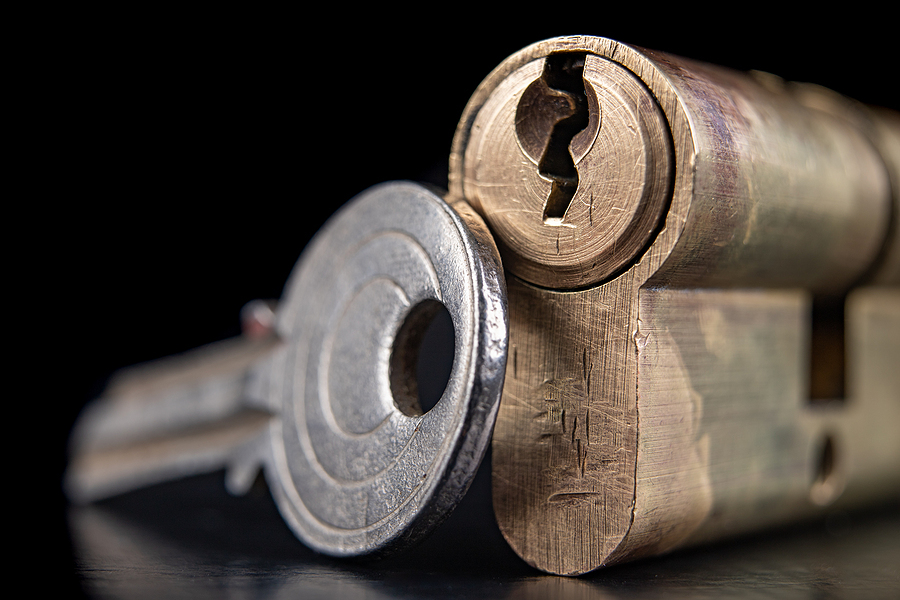What is Key Control and Why is It Important?
When considering the physical security of your business, the mechanical keys employees have in their hands play a major role. A well-devised key control policy means you’ll always know exactly who has access to your facility.
Key control policies and procedures protect employee lives, business valuables, and the overall security of your facility.

What is Key Control?
Key control is an access control system you can use to keep track of your company’s keys. It allows you to be sure your keys are being used by authorized people only.
The rise of cybercrime has pushed people to focus their attention on improving information security and high-tech security measures. But improper handling of mechanical keys can allow your facility to be vulnerable — even when sophisticated security systems are in place.
Your key control system will include steps you can take if you know a key has been lost or fallen into the wrong hands. It will also ensure your company keys can’t be duplicated without proper authorization.
Why You Need a Patented Key Control System
A patented key control system is the only way you can be sure your keys aren’t being duplicated by unauthorized people.
In a patented system, the key blanks are only available to the locksmith dealer directly from the manufacturer. This means your locksmith dealer has complete accountability.
Don’t be fooled by keys that are stamped “Do not duplicate.” A key needs to meet the standards of a true patented key control system. Otherwise, the only security you have is perceived security.
To create a comprehensive key control policy, work closely with a locksmith that is an authorized dealer of patented key control products.
How a Locksmith Can Help with Key Control
Locksmiths are trained to do much more than just copy your keys. They’re professionals who will work with you to design an enforceable system to keep your business secure.
Ask yourself these questions to figure out whether your facility needs the help of a locksmith to enforce your key control policy:
- Do you give out keys to your employees?
- Is it okay for them to make copies of those keys without your permission?
- Do you have a policy in place for issuing and recovering keys?
- Do you conduct routine key audits?
- When an employee loses a key, can they copy a coworker’s?
If you don’t know the answer to any of the questions above, it’s a good idea to get a locksmith to help you create a key control plan for your facility.
How to Set Up Your Key Control System
These steps will help you understand how to devise a comprehensive key control plan:
Start with a Patented Keying System
Stamping “Do Not Duplicate” onto your keys won’t help if you’re not monitoring their distribution. Instead, you should inquire about a product with a Utility Patent.
A patented lock system means the keys are available only through the originating locksmith. The locksmith will only make copies for the personnel who are authorized to have them in their possession.
Work Closely with Your Locksmith
Meet with a trusted locksmith to create a key control plan together. For example, Richmond Security has trained locksmiths who are experts in residential and commercial keying.
Your locksmith can help you design a master key system. That way, you’ll have a set of keys for different purposes. You could have sets created for the owner, employees, and night staff, which will all have different levels of access to various areas of your facility.
Give Your Locksmith a List of Authorized Individuals
Your approved locksmith will need a complete list of people who are authorized to create duplicate versions of keys. This will keep your keys from ever being copied at a local store by any person who holds the blank.
Sign Out New Keys
You should always monitor who currently has a copy of your key and how many copies there are out there. This can easily be tracked by key management software designed to be compatible with your system.
Ask Employees to Sign a Keyholder Agreement
All trusted keyholders at your facility should have to sign a keyholder agreement. They’ll agree to immediately report lost keys and to return their key if they leave your employment.
If you have high employee turnover, you should implement a process to ensure that you always get a key back from your departing employees.
Final Thoughts on Key Control
Creating a key control plan for your company will require an investment of time and effort from you, your trusted locksmith, and your team.
Richmond Security has a pre-designed Key Control Policy that can be easily customized and implemented as a part of your company’s overall security program.
The high level of security will be worth it in the end to have a master key system, restricted duplication access, and peace of mind for you and your team.
Click below to find out more ways we can help protect you and your business!
